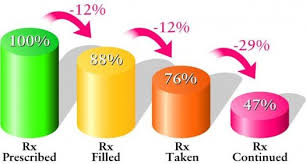I do not watch much television but there are a few programs that capture my attention. A few years ago I got
hooked on "Deal or no deal". I was fascinated by the decisions made by contestants and their reasons for decided as they did. I saw it as a trove of data which would ultimately serve to someone's doctoral thesis in behavioral economics. Now I am fascinated by "Shark Tank" and what draws me to this is the laser focus of the sharks, the venture capitalists and how any given product or service will meet the wants of the public. Whatever you might feel about any of the sharks as people, you have to admit they are gifted in terms of seeing what the public might desire and spend their own precious treasure to acquire.
The last episode I watched highlighted a pair of inventors who developed what I thought was a remarkable

product, one that converted boiling water into electricity. I thought it was an extremely cool technology. However, most of the sharks were not so turned on to it because they thought the markets in the US would be limited. Most of them really disliked the idea of camping and thought their views were representative of the public at large. I could not help but think of my experiences in Haiti where such a device would be extremely useful and the discussion ultimately focused in on this. Mark Cuban asked about whether the inventors had considered developing world applications, which they had. Everyone on the panel thought that people in these circumstances would use this device primarily to charge small battery operated devices such as cell phones This was also the initial thought of the inventors. However, they were surprised to discover that when they inquired, their potential customers desired something else; they wanted the capacity to generate electricity to produce lighting. They were less concerned about charging their cell phones and more interested in prolonging daylight. Everyone on the panel thought they understood what their customers wanted until they asked them.
There is a lesson here for those of us to are in health care. One characteristic of the current delivery system is that our patients, our customers, baffle us by not doing what we recommend. We call this non-compliance. There are impressive numbers floated regarding the scope the problem: 20-30% of prescriptions are never filled and around half are not taken as prescribed. The knee jerk reaction among those of us within the medical fraternity (sorority) is that this behavior is a marker of some sort of basic human character flaw which warrants remedial training. I would suggest that it may me more indicative that we are trying to sell a product which our patients for which they detect little value.

There are data which support this contention. It has been demonstrated that reducing the copays on medications increases patient compliance. This is consistent with the value theory I propose. If the interventions proposed by us cost substantially more than nothing, patients make the assessment that even at nominal cost they do not provide sufficient value to their lives to make the investment of their own resources. The articles in the medical literature for the most part make it a given that the interventions we recommend are slam dunks and no one but fools would decline them. Of course you want a parachute when you jump out of an airplane! Duh! I would suggest the data are not so compelling. The truth may be substantially more nuanced. As noted in a NYT blog piece by
By DANIELLE OFRI, M.D. (Orfri blog, Nov 2012):
“It’s an immense oversimplification” to reduce compliance to whether or not a patient swallows a pill, says the author, Dr. John Steiner, a researcher at Kaiser Permanente in Colorado.
To illustrate his point, he constructed a chart for a theoretical 67-year-old patient with diabetes, hypertension and high cholesterol and tabulated what it would take to be “adherent” with all medical recommendations.
Besides obtaining five prescriptions and getting to the pharmacy to fill them (and that’s assuming no hassles with the insurance company, and that the patient actually has insurance), the patient would also be expected to cut down on salt and fat at each meal, exercise three or four times per week, make it to doctors’ appointments, get blood tests before each appointment, check blood sugar, get flu shots – on top of remembering to take the morning pills and then the evening pills each and every day.
Added up, that’s more than 3,000 behaviors to attend to, each year, to be truly adherent to all of the doctor’s recommendations. Viewed in that light, one can see how difficult it is for a patient to remain fully compliant.

This perspective does not even begin to touch upon the question of whether patients are even close be being convinced they derive value from any of this. Like the sharks described above who thought they knew what wants motivated their target populations, we are often clueless as to what wants drive our patient decisions. However, unlike the sharks who generally have proven masterful in understanding human wants and have become wealthy because of this, the culture of health care delivery has historically tended to ignore what patients want and focused primarily on what we think they need. In some sense it is remarkable we get as much buy in from our patients as we do. While 20-30% of patients may not fill their prescriptions, that means that 70-80% fill them.

In order to better get our hands around these issues, let's take a hypothetical example from outside of the health care industry. Imagine that you find that your old computer is slow and runs on Windows XP, no longer supported by Microsoft. You have heard about security risks and decide to investigate whether a new machine is in order. You go to a big box retailer (Best Buy) to look into the purchase of a new computer and try to explain to the sales associate what you think you need. The salesman immediately directs you to the highest end machine they sell and also tries to sell you an extended warranty. When you balk, believing that the high end investment does not actually bring you the value you need, the salesman suggests that you are ignorant and calls you "non-compliant". He points out to you that you obviously don't understand the risks involved in buying a cheaper machine or sticking with an obsolete XP operating system. There is much at stake here with your valuable photos and financial records which all could be lost if you are not covered with an extended warranty. People lose their valuable data every day! We will just mark your Best Buy customer record with the "Non-compliant" check mark.
We in health care are involved a service industry. We need to realize that recent history has placed this service industry within a very peculiar financial environment which has insulated many if not most of its customers from many of the actual costs of service delivery and thus has created a perverse set of incentives and a skewed set of perspectives on the value placed by patients upon the services we deliver. However, as the cost of the medical services becomes increasingly transferred on to patients, it appears patients perhaps value the services we offer much less than we thought they would or
should. This comes as a surprise to those of us delivering the services since our impressions of value have formed by seeing demand within an environment of almost no cost to those demanding the service. Raise the price just a little and oh how the demand seems to evaporate. Perhaps we should try harder to convince patients that what we offer really does bring them value, convincing them to sped their time and resources on what we recommend. That can be viewed as education and/or marketing but the onus is on us, not on our patients. We should work hard to ask them what they they view their needs to be, where their priorities are, and what they want. We will need to be prepared for answers we do not expect or want to hear.